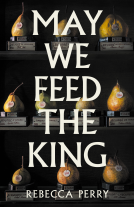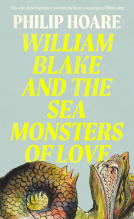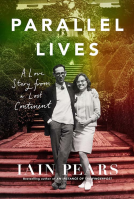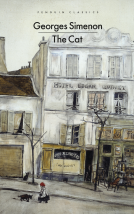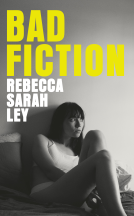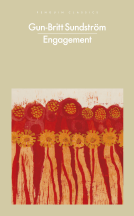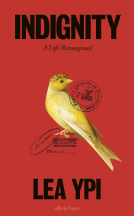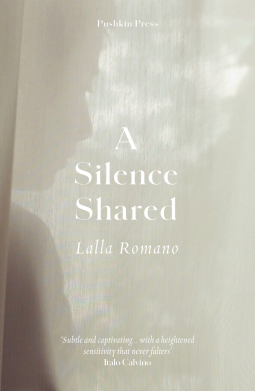
A Silence Shared
by Lalla Romano
This title was previously available on NetGalley and is now archived.
Send NetGalley books directly to your Kindle or Kindle app
1
To read on a Kindle or Kindle app, please add kindle@netgalley.com as an approved email address to receive files in your Amazon account. Click here for step-by-step instructions.
2
Also find your Kindle email address within your Amazon account, and enter it here.
Pub Date 21 Feb 2023 | Archive Date 15 Jan 2023
Talking about this book? Use #ASilenceShared #NetGalley. More hashtag tips!
Description
A diamond-sharp, Italian classic about the mysterious relationships between two partisan couples in German-occupied Italy in the wintry mountains of Piemonte
This hauntingly beautiful, sharply modern novel of WWII is perfect for fans of Tove Ditlevsen, Rachel Cusk, and Lucia Berlin
Translated into English for the first time, A Silence Shared is a captivating classic novel that inhabits the silent spaces between historic events, depicting the mysterious luminosity of human relationships in extraordinary circumstances.
In prose of subtle, enigmatic atmospheres and acutely precise images, Lalla Romano evokes both the tension and the stillness of life in occupied Italy.
Sheltering from the war in a provincial town outside of Turin, Giulia and her husband Stefano feel an instant affinity with Ada and Paolo: she a spontaneous, vibrant young woman, he a sickly intellectual, a teacher and partisan in hiding.
As the Germans begin to occupy Italy, a subtle dance of attractions between the couples begins, intensified by their shared isolation and the muffled hum of threat over a long, hard winter.
Available Editions
| EDITION | Other Format |
| ISBN | 9781782278207 |
| PRICE | US$16.95 (USD) |
| PAGES | 176 |
Average rating from 11 members
Featured Reviews
 Carrley H, Reviewer
Carrley H, Reviewer
Lalla Romano’s spare 1957 novel traces the encounter between two couples hiding in Northern Italy near the end of World War II. By her mutual affection with Ada and Paolo, the narrator is absorbed into a provisional community destined to disband in unison with the German occupation. She reflects, “I knew for sure that nothing like this would ever have happened in real life.” By Romano’s account, war is misery, desperation, desolation, abandonment. It invokes a sense of “bewildered loss” which, in its universality, begets “something sweet.” War is not real life.
This novel of images (Romano was a painter before the war) is striking because those images seem to recede sharply just as soon as they’ve come into relief. I’m thinking of the narrator’s visit to the apartment where Paolo is staying in Turin. They dine together on his meager provisions in a scene that would certainly be vital if we were to read A Silence Shared as a novel overtly concerned with plot. Instead, once established, the scene dissolves into the occasion of it being recounted to Ada. The immediacy of a meal shared with a loved one is cut through by the narrator’s self-consciousness and by time’s lack of sentimental consideration. We’re in the realm of echos and reflections. Dreams (which are always “in some way dictated by me”) meld with memory. There’s something melancholy and touching about this place.
“It’s true that when the end already seems near, there is always still a stretch of time left,” says the narrator. Romano is interested in what we make of that interim, and our strange capacity to resist change even in the midst of desolation. Reading A Silence Shared, I felt that so much of the profound romance we crave is fated to a sort of liminal, suggestive existence. A man shares pears with Ada and the narrator on a train journey. She reflects, very simply, “The goodness of this man revived us.” Perhaps we should seek love’s vivifying effects in small gestures, silences and shadows. Who are we to demand that everything be laid out on the surface? Romano is an unusual writer in her intuitive understanding of this position, and the ease with which she permits language its limitations.
** Note: This book is to be enjoyed more like a piece of art than a historical fiction, because if you're coming at it from that angle, it probably isn't going to work for you.**
This novella is a love letter to human relationships, to noticing the varying smiles on a friends face, to finding warmth around a table of shared food when it is snowing outside. To the white sun and shimmering mountains. To stillness. The prose feels like a still life painting come to life. The kind of painting that doesn't ask anything of you, doesn't want you to find a deeper meaning, just lets you enjoy being there with it.
I'd never heard of author Lalla Romano before. She is an Italian poet, artist and journalist (born in 1906 and lived to the ripe old age of 95), whose works have barely been translated into English until now. In this story/memoir (she likes to be sure you know she has taken creative license) written in the 90's, she writes about sheltering from the action of WWII in a little Italian town with a married couple whom become her dear friends.
It is a quiet, subtle, beautiful book that you a tell has been written by an artist. I recommend it to readers who like gentle stories and memoirs that focus on atmosphere and the delicate nuances of people and relationships. I personally really enjoyed it. It felt easy to read, refreshing, intimate, whilst ever so peaceful.
a dreamlike, wintry, oddly sexy little novella.
really appreciated the translator’s and author’s notes, which bookend the novel with just the right amount of context to understand the thread of disquiet that comes from the novel’s engagement with occupation/the war.
Readers who liked this book also liked:
Philip Hoare
Arts & Photography, Biographies & Memoirs, Nonfiction (Adult)
Pirkko Saisio
Biographies & Memoirs, General Fiction (Adult), Literary Fiction


